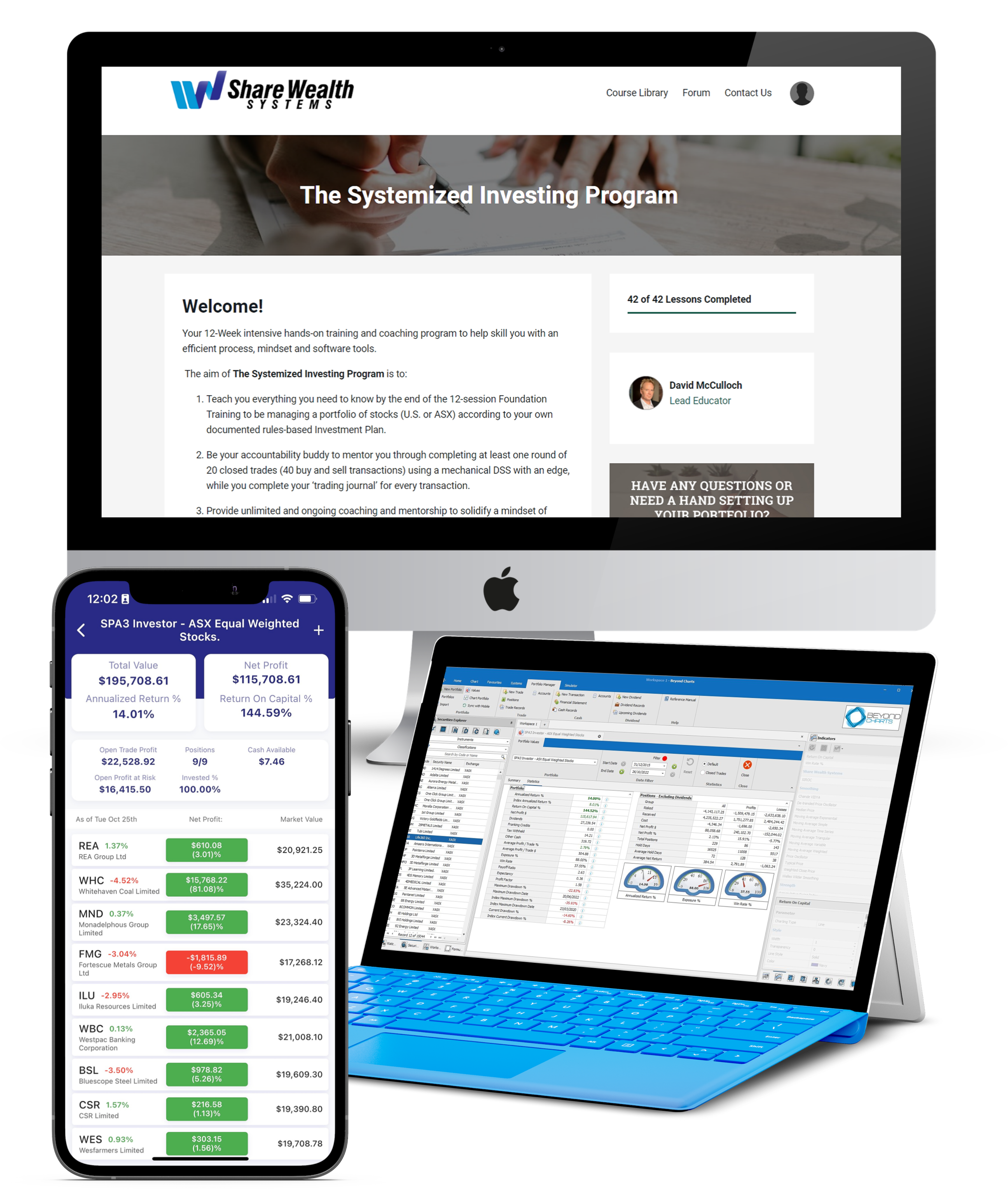Put simply, volatility is the up and down movement of the market. It is usually measured by any deviation from how the market is expected to perform.
A common analogy is that of a ship in the ocean, come volatile weather it will be thrown about as the water swells to rise and fall beneath it. A natural response is fear and this will see people batten down, seeking safety and security.
Market volatility sounds daunting, but don’t start panicking yet! In a volatile market, prices of stocks climb and fall within a matter of minutes, hours, days, weeks or months.
In a volatile market, it can be difficult to predict the future of your stock, and investors can get their hopes up if the value starts to climb, and then become concerned if the prices suddenly drop. Volatility can be caused by many different factors, but a huge chunk of it depends on the investors themselves – their fear (Link to mechanical investing blog referencing Fear + Greed), their greed, and their confidence.
What Causes Stock Market Volatility?
It is a result of large numbers of market participants making purchase and sale decisions in response to market news and activity that causes uncertainty around a stock’s value.
The financial turmoil of Greece and resulting speculation of a Grexit (Greek exit from the EU) sparked global market volatility as investors became fearful of ripple effects in the market. Risk averse investors may anticipate bad news and sell their stocks to minimise exposure.
Closer to home, the Chinese stock markets have experienced dramatic volatility. From mid-June to July 2015 more than 30% of market value was lost. This comes after the market grew 1.5 times its value during the previous 12 months. Commentators point to the large number of first time ‘mum and dad’ Chinese investors having entered the market as a result of government encouragement over the past year. Just as how their enthusiasm to join the market saw prices rise, their fear and risk aversion to a price correction is seeing them exit the market in large numbers.
The unpredictability of markets can represent the greatest risk for investors.
Volatility may seem problematic, but it can actually be beneficial for investors. As an example, imagine if your stock price never changed – what are the chances of you making a profit? None. However, a stock with a constantly changing price can be a little more exciting for investors who may like the adrenaline rush in anticipation of a positive outcome.
A volatile market symbolises a change and this can leave investors with gains or losses, depending on the final outcome. Volatility goes hand in hand with risk. The more volatile a market is, the greater the risk for investors as the price of stocks swings more dramatically.


